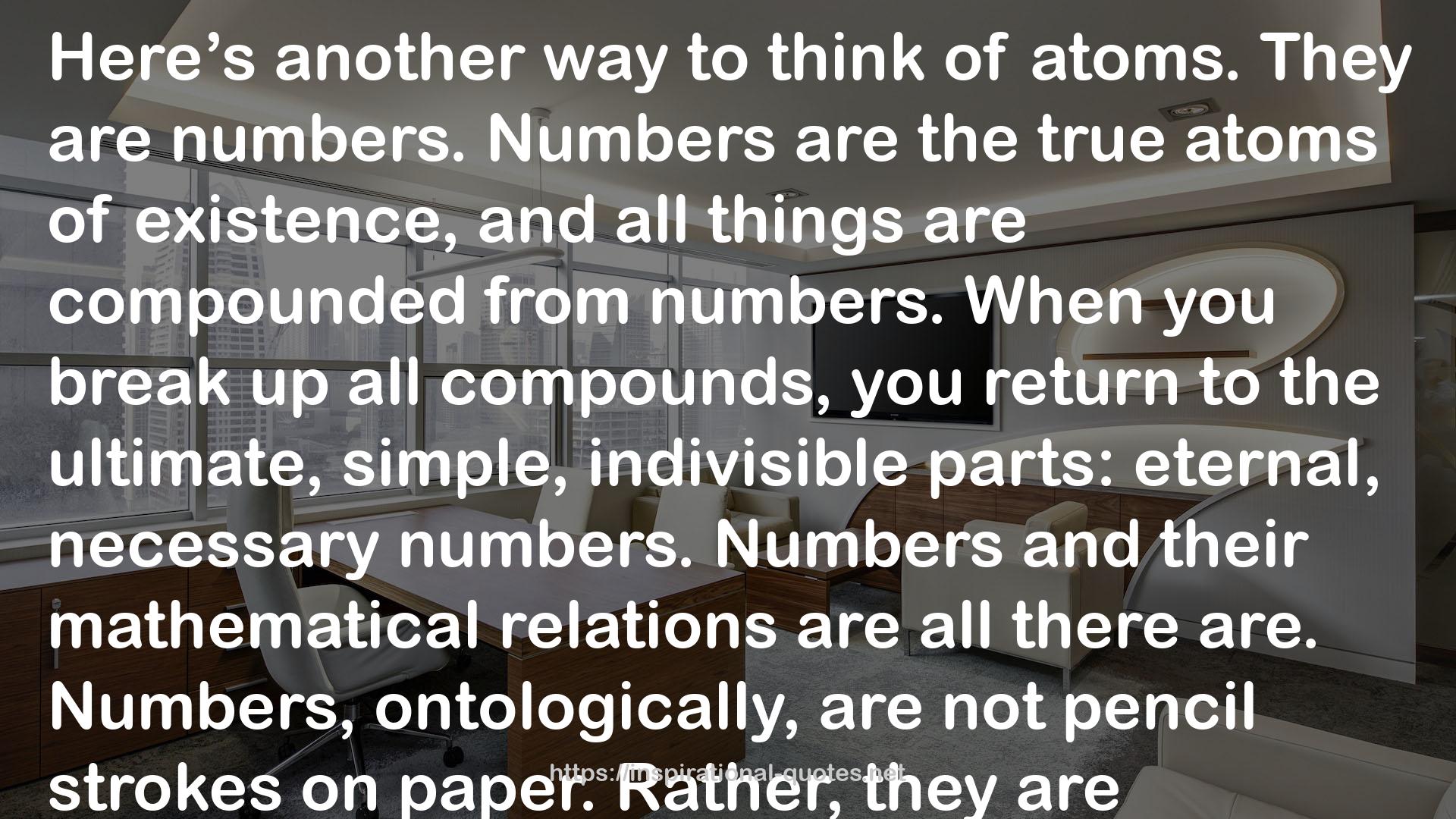" Here’s another way to think of atoms. They are numbers. Numbers are the true atoms of existence, and all things are compounded from numbers. When you break up all compounds, you return to the
ultimate, simple, indivisible parts: eternal, necessary numbers. Numbers and their mathematical relations are all there are. Numbers, ontologically, are not pencil strokes on paper. Rather, they are energy-frequencies that exist as sinusoidal waves, and reality is nothing but how these eternal waves interact, and enter into
temporal, contingent wavefunctions. In other words, the answer to existence is simply to correctly define what numbers are ontologically, and what laws dictate their interactions. This is what Pythagoras first attempted two and a half thousand years ago. He conceived of numbers as living, dynamic things ruled by harmony (and discord). Isn’t that a far more powerful notion of reality than Feynman’s? "
― , The Forbidden History of Science (The God Series Book 26)
